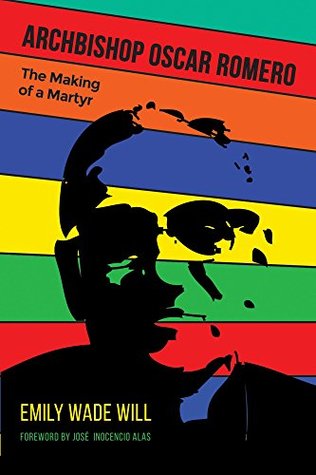Kindle Notes & Highlights
The light beam is his deep spirituality, evident from childhood and later flowering in a spirit of solidarity and service. He accepted his being different from others, a faith commitment for which he gave his life.
Oscar is a young man, seventeen and eighteen years old, and his worldview broadens with the study of the classics of literature, an opening to the world. This is the time of greatest human growth, the widening of the universe before studying philosophy and theology.
“Romero, who built peace with the power of love, bore witness to the faith in the extreme by offering his life.”
What caused him to leapfrog from a stalwart of the old-style Catholic Church, steeped in ritual and emphasizing personal sin, to a champion of its daring modern stance on societal sin and just human relationships?
He’s unique, she notes, in that he broke two rules of human behavior: that old people do not change; and that the more authority an official attains, the more that official distances him- or herself from the common people.3
Liberation theology is based on the belief that Jesus did not call merely for charity to the poor but also desired a just society in which wealth and power were shared by all.
Yet he feared what people would think if he backed out of taking his vows at such a late date. He also worried about what he would do as a vocation after years of preparing for the priesthood.64
Strongly influenced by liberation theology, base communities built solidarity among members as they came to understand they were poor not due to “God’s will” but rather to society’s injustices, in which few people control much wealth and power and many go hungry.
Capitalism sets money and profits before people, and communism concentrates power in the state, which often becomes totalitarian.
The silence of the sacred invites us to make the best decisions of our lives.
Following a disappearance, the only recourse open to a relative was to tell everything they knew. It provided an essential release from the tension.”
What remains is love. What remains is that which one puts into the service of others: one’s money, one’s assets, one’s profession, the joy of having shared and the feeling that all are one’s sisters and brothers. In the evening of our lives, we’ll be judged by our love.
Despite his basic sympathy with the “forces of the people,” Romero recoiled at the idea of violence. He believed revolutionary organizations using kidnapping and other forms of violence put their own agendas first, making idols of their views and goals.
How proposals would affect the poor became the yardstick by which Archbishop Romero evaluated plans, whether suggested by the government, the church hierarchy, or other officials. “We will always measure our actions according to how things are going for the people,” he
As journalist María López Vigil noted, a basic rule of human behavior states that the more authority an official attains, the more he distances himself from the common people.
“One must not love oneself so much as to avoid getting involved in the risks of life that history demands of us. Those who try to fend off the danger will lose their lives, while those who out of love for Christ give themselves to the service of others will live, live like the grain of wheat that . . . allows itself to be sacrificed in the earth and destroyed. Only by giving itself does it produce the harvest.”491


